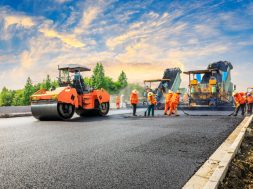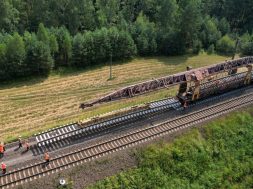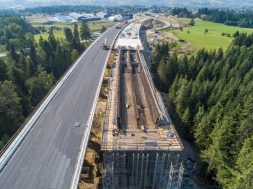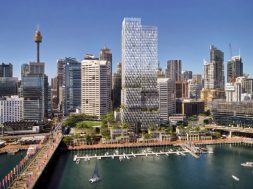The recent real estate boom and urbanisation witnessed by metropolitan cities like Mumbai, Hyderabad and smaller cities like Ahmedabad have contributed to the trend of vertical construction. India is now touted to be the next hub for tall buildings and high-rise structures due to high density and smaller building footprints offered by Indian cities. “India is on a vertical quest”- this is a quote from an article by a leading national newspaper which highlights the major developers efforts to make skyscrapers a reality in India.
With 50% of India’s population expected to live in the urban areas by 2030 resulting in lack of space, constructing tall buildings is inevitable. However, there are several challenges concerning regulatory guidelines and Floor Space Index (FSI) norms that restrict the construction of high-rise structures in India. Due to the increasing relevance of such high-rise structures in India, major developers, designers and construction companies in the country feel the need to relax the FSI norms and clearance procedures.
Despite these challenges, there are currently 82 tall building projects under construction in India. Up-coming projects like World One, the tallest residential tower in the world and the proposed 720-metre super tall India Tower in Mumbai have revolutionised this growing trend of skyscrapers in the country. Mumbai will also be home to one of India’s greenest buildings, a 320 metre octagonal structure which blocks radiation, stores rainwater, processes its own waste and provides natural ventilation to the building. Besides Mumbai, there are several tall buildings mushrooming in cities like Gurgaon, Hyderabad, Bangalore and Ahmedabad. GIFT in Gujarat, the 100 storey APIIC tower and 90 storey Lanco Hills in Hyderabad and the 660-metre tall Bangalore Turf Tower would be the latest additions to the now expanding skyline of India.
IQPC India, the Indian arm of the global event services company has carried out extensive research in the area of tall buildings and vertical construction recently. According to the survey conducted by the organisation, improving technical expertise in the structural design, architecture and construction is high on the agenda for the country’s top developers and consulting firms. Respondents also felt the need to develop a blue print for such high-rise projects that includes clear provisions for safety, environmental clearance, sewage treatment, recycling etc.
In order to address the nagging issues and challenges in today’s vertical construction in India, IQPC will be launching Tall Buildings India at JW Marriott, Mumbai. The two-day conference, taking place from 31 January – 1 February 2011, will bring together India’s leading developers, national and international design consultants, architects, material suppliers, equipment manufacturers and associations on a common platform. Tall Buildings India will feature exclusive presentations and case studies by experts from world-class organisations like James Law Cybertecture, Arup, Hyder Consulting, Broadway Malyan, TFP Farrells and Web Structures. Besides these international firms, the event will also be well represented by some of the biggest architecture firms in the country like Sanjay Puri & Associates, SK Das, RSP Design Consultants and organisations like Urban Vision and Future Cities who will give their perspective on urbanisation. Keynote speakers at the event would include a Senior Planner from Mumbai Metropolitan Region Development Authority (MMRDA) and Mayank Gandhi from Remaking of Mumbai Federation.
Tall Buildings India – at a glance
Two-day conference on vertical construction in India
Date: 31 January – 1 February 2011
Venue: JW Marriott, Mumbai
For more information, visit website www.tallbuildingsindia.com
Cookie Consent
We use cookies to personalize your experience. By continuing to visit this website you agree to our Terms & Conditions, Privacy Policy and Cookie Policy.









